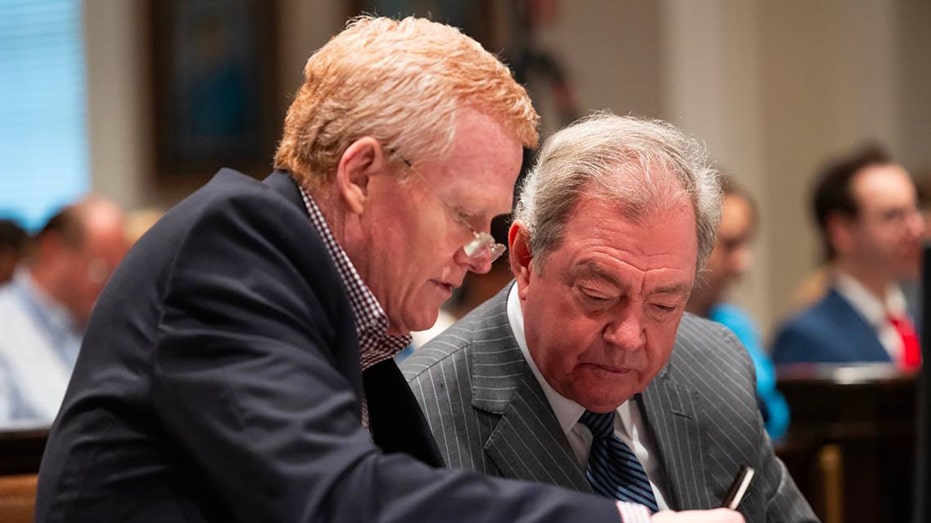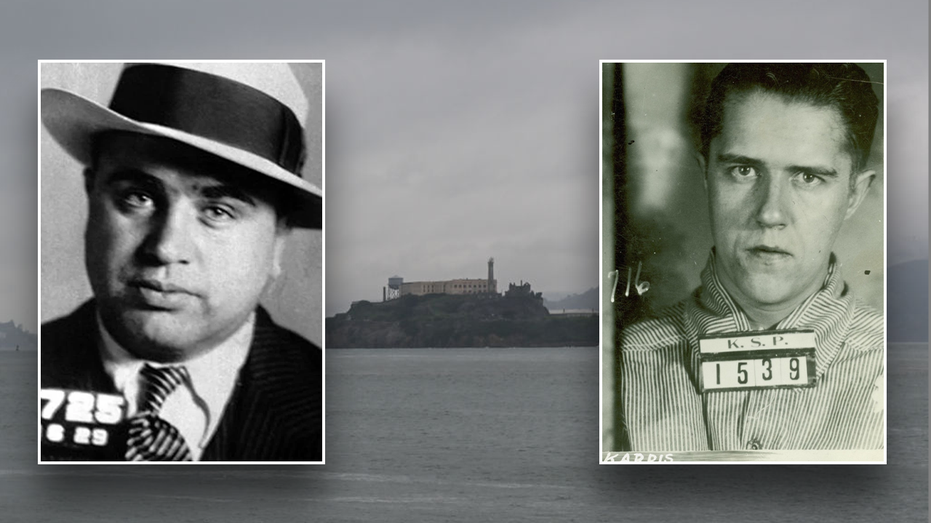Supreme Court faces backlog of emergency cases
Forget 911. When the Trump administration has an emergency, it just calls nine — justices, that is. At the Supreme Court, a staggering number of emergency appeals are pending, most brought by the administration and ranging from birthright citizenship to the Department of Government Efficiency (DOGE) to independent agency leader firings. There are nine emergency...

Forget 911. When the Trump administration has an emergency, it just calls nine — justices, that is.
At the Supreme Court, a staggering number of emergency appeals are pending, most brought by the administration and ranging from birthright citizenship to the Department of Government Efficiency (DOGE) to independent agency leader firings.
There are nine emergency applications now before the justices. And yet, as they pile up, the court is taking its time.
The administration’s request to fire Democratic appointees at the National Labor Relations Board (NLRB) and Merit Systems Protection Board (MSPB) has been fully briefed for three weeks, but the court has yet to act.
And after moving at lightning speed in the middle of the night to temporarily halt some deportation flights under the Alien Enemies Act, the court hasn’t resolved that application, either, despite it being fully briefed for more than two weeks.
The stasis is unusual — but so is the massive emergency docket activity.
A new layer of mystery was added Tuesday, when a later case jumped the line.
The justices allowed Trump to enforce his transgender troops ban, which was blocked nationwide by a lower court. The high court received the request after those others were already pending, and the briefing completed just last Friday.
Another curious element: The court has tended to issue explanations of its emergency rulings on Trump policies (see here, here, and here), but Tuesday’s order contained no rationale. Even the three liberal justices refrained from writing anything in dissent.
As questions remain regarding the lack of progress on the other cases, the court’s plate is about to get fuller.
In the next few days, the administration’s requests to provide DOGE access to critical Social Security systems and end deportation protections for hundreds of thousands of Venezuelans will be ready for the justices.
Emergency applications can feel like a black box, so let’s walk through the justices’ options. The justices have five main pathways:
- Deny the application: In most cases, the court simply denies the application. This term, 60 of the 67 emergency appeals decided by the full court have been denied.
- Grant the application: This is the opposite end of the spectrum, and it’s the most straightforward way for the applicant to win. The court can grant an injunction, stay or whatever else is requested and send the case back to the lower courts for further proceedings.
- Schedule oral arguments: By default, the court resolves emergency appeals based on only written briefs. But the court can opt to take the bench to hear oral arguments before issuing a ruling. This option is historically very rare, but it is increasingly becoming more common. The court will do so on May 15 in Trump’s effort to partially enforce his birthright citizenship order.
- Move to merits docket: The court can pluck the case out of the lower courts entirely by moving an emergency appeal to the merits docket. This option leapfrogs the normal appellate chain but allows the justices to swiftly provide a definitive, nationwide resolution on pressing legal issues. The Trump administration has requested the court do so in the appeal seeking to fire the NLRB and MSPB members.
- Grant an administrative stay: When the court needs time to think through its decision, it can issue an administrative stay, which preserves the status quo until the application is resolved. This is what the court did to temporarily halt some Alien Enemies Act deportation flights. Ultimately, the court will still need to choose one of the other options.
Unlike opinions in normal cases, decisions on emergency applications can come at any time, even at 1 a.m. — so, buckle up.
Why so many emergencies in the first place? It depends on who you ask.
Trump’s detractors say it shows he is acting lawlessly. The president’s supporters blame the dozens of nationwide injunctions imposed by federal district judges.
“The biggest emergency is the courts aren't allowing us to take really bad people out,” Trump said in an interview on NBC’s “Meet the Press” this weekend. “Well, that's to me the emergency, because the border now is not the emergency.”
Usually around this time of year, the biggest Supreme Court news we’re watching for is the trickle of opinions released by the justices as the term winds down.
Decision season kicks off next week. But the deluge of emergency applications is sucking up valuable time that the justices would typically devote to the term’s merits cases.
If Justice Neil Gorsuch wants to make it to Prague to teach his annual summer class, they better get a move on.
Welcome to The Gavel, The Hill’s weekly courts newsletter from Ella Lee and Zach Schonfeld. Click above to email us tips, or reach out to us on X (@ByEllaLee, @ZachASchonfeld) or Signal (elee.03, zachschonfeld.48).
Not already on the list? Subscribe here.
In Focus
Trump admin picks first legal fights with states
After months of being battered in the courts, the Trump administration is going on offense.
The Justice Department (DOJ) has in recent days announced a handful of lawsuits against cities and states led by Democrats, taking aim at so-called “sanctuary cities,” climate efforts and policies supporting transgender people.
It’s bringing President Trump’s own legal agenda into focus: a mix of culture war flashpoints with the potential of big ramifications for his left-wing opponents.
Last week, the DOJ started to pile on complaints.
The administration sued Colorado and its capital city, Denver, on Friday for allegedly interfering with federal efforts to enforce immigration laws by passing "sanctuary laws,” measures which limit local cooperation with federal immigration authorities.
In its complaint, the DOJ alleged that the laws were enacted for the “sole purpose” of impeding the federal government’s ability to enforce immigration law and deport noncitizens.
DOJ also filed a lawsuit against Illinois on Thursday over a measure meant to protect the privacy of workers who aren’t U.S. citizens, claiming the law “incentivizes illegal immigration and makes it harder for federal authorities to do their job.”
And four states saw legal action taken against them for climate initiatives. The Justice Department on Wednesday sued Michigan and Hawaii to block them from suing fossil fuel companies over climate change, and on Thursday, sued New York and Vermont over their laws that require fossil fuel companies to pay for emissions stemming from their products, dubbed “climate Superfund” laws.
These aren’t the first suits the Trump administration has filed against Democratic-led states.
DOJ previously sued Maine’s Department of Education over an alleged Title IX violation for allowing transgender students to participate in girls and women’s sports in schools; New York, over provisions in the state’s “Green Light” law that lets state residents get driver’s licenses no matter their immigration status; and both Illinois and Chicago over their “sanctuary” policies.
Even still, the Trump administration has been primarily on defense, fending off legal challengers who have picked apart the president’s exhaustive agenda since his first day back in the White House.
But the cluster signals that the administration has settled in enough to start taking legal action of its own — and that more could be on the way.
Trump’s pick for top DC prosecutor on shaky ground
It’s crunch time for Ed Martin.
Trump’s controversial pick to serve as D.C.’s top prosecutor must be confirmed by May 20 or see his interim position expire. But as the deadline nears, his bid for the prominent role is on increasingly shaky ground.
On Tuesday, Martin lost backing from Sen. Thom Tillis (R-N.C.), a key vote on the Senate Judiciary Committee, over his advocacy for those who stormed the Capitol on Jan. 6, 2021.
A former “Stop the Steal” organizer, Martin has vigorously defended Jan. 6 rioters and launched a probe into the decision to bring felony obstruction charges against some who participated in the Capitol attack — a count the Supreme Court later narrowed. He also has overseen the firings and reassignments of prosecutors that worked on Jan. 6 cases.
“If Mr. Martin were being put forth as a U.S. attorney for any district except the district where Jan. 6 happened, the protest happened, I’d probably support him. But not in this district,” Tillis told reporters Tuesday.
To advance to the Senate floor, Martin needs the support of a majority of the Senate Judiciary committee, which is narrowly controlled by Republicans 12-10. If another Republican steps out against him, it’s unlikely his nomination will make it to a full vote.
But the White House hasn’t given up yet; Trump himself has been making calls to Republican senators on Martin’s behalf, CNN reported.
"Ed is coming up on the deadline for Voting and, if approved, HE WILL NOT LET YOU DOWN,” Trump wrote in a winding Truth Social post Monday night.
Trump admin backs Hawaii gun law challenge
The Trump administration is taking a rare, aggressive approach to bolster a challenge to a Hawaii gun control law at the Supreme Court.
The federal government is not a party in Wolford v. Lopez, a pending petition that challenges Hawaii’s statute preventing people from carrying firearms on private property without the owner’s express permission.
But without prompting, the Justice Department filed an amicus brief urging the high court to take up the case.
The Supreme Court does sometimes invite the solicitor general to weigh in on a petition (we detail one recent example in Order List below). But it is unusual for the administration to get involved on its own accord.
It has only happened about a dozen times in the last two decades, according to John Elwood, who heads Arnold & Porter’s Supreme Court practice. The Trump administration, however, has done so three times since taking office.
In the latest plea, Solicitor General D. John Sauer said the Hawaii gun law effectively defies the Supreme Court’s 2022 landmark decision expanding Second Amendment rights, NYSRPA v. Bruen, that held gun control laws must be consistent with the nation’s historical tradition of firearm regulation.
“Five States embracing more than a fifth of the Nation’s population have already adopted that type of Bruen-nullifying rule, and the decision below invites other jurisdictions in the Nation’s largest circuit to do likewise,” Sauer wrote.
Hawaii’s Democratic-controlled legislature passed the law, Act 52, in 2023. It has come under challenge from three concealed carry permit holders and a gun rights group, but a lower court upheld the provision.
The Supreme Court has declined to take up new Second Amendment cases after clarifying last term that the Bruen test does not prevent the government from disarming domestic abusers, but Sauer told the justices more guidance is needed.
He said recent case began to clarify who may possess firearms, but the justices still need to address where they may be carried and what types of arms people can possess.
“Will it be enough? Who knows, maybe SCOTUS will still balk due to the interlocutory posture. But as I said earlier, if a brief from the solicitor general doesn't get this across the line, nothing will,” gun rights lawyer Kostas Moros wrote on X.
Order List
IN: Nothing
The court took up no new cases at its recent conference.
OUT: Camp Lejeune jury trials
The court turned away a petition filed by Susan McBrine and David Petrie, who sought a jury trial in their lawsuit over drinking water contamination at U.S. Marine Corps Base Camp Lejeune.
In 2022, Congress passed the Camp Lejeune Justice Act to provide victims a pathway to receive monetary damages from the federal government. McBrine and Petrie appealed to the high court after lower judges rejected that their lawsuit can be decided by a jury.
Long standing Supreme Court precedent provides that plaintiffs suing the federal government only have a right to a trial by jury where Congress has “affirmatively and unambiguously” granted the right in the relevant statute.
McBrine and Petrie argued the law is “especially clear” that it grants such a right.
“The CLJA is no ordinary statute,” their legal team, led by attorneys at Quinn Emmanuel, wrote in the petition.
“It aims to redress the United States government’s own horrific mistreatment of those who devoted their lives to keeping us safe. Many of the victims are elderly and ailing. They deserve to have their claims heard by their fellow citizens, as Congress prescribed,” it continued.
The Justice Department disagreed, urging the Supreme Court to turn away the case,
“Petitioners’ position rests on the unfounded assumption that Congress departed from the established principle that jury trials are unavailable against the United States without a word of discussion about the consequences that thousands of potential jury trials would have for the United States, the district court, and the people in the Eastern District of North Carolina,” the Justice Department wrote in court filings.
MAYBE: Exxon’s Cuba dispute
The court asked the federal government to weigh in on Exxon Mobil Corporation v. Corporación Cimex, a dispute that dates to the Cuban Revolution.
After Fidel Castro took power, his regime took all of Exxon’s oil and gas assets in the country. It was later valued at over $70 million in 1960 dollars.
Fast forward 36 years. Congress passed the Helms–Burton Act, which allows Americans to sue any person “that traffics in” property confiscated by the Cuban government.
Exxon is attempting to leverage the law to seek damages from three Cuban state-owned companies. But lower courts ruled that the Helms-Burton Act does not pierce a foreign sovereign’s legal immunity, and that Exxon would need to qualify for one of the normal exceptions under the Foreign Sovereign Immunities Act.
The court on Monday issued what is known as a “Call for the Views of the Solicitor General,” or CSVG. Unlike the gun case, where the government got involved without prompting, a CVSG invites the federal government to file an amicus brief.
Though technically not mandatory, the government virtually always takes up the justices on their invitation.
The Supreme Court issues such a request only in a handful of cases. Monday’s is the 13th CVSG since the court’s annual term began in October.
It remains to be seen what position the Trump administration will take. But most immediately, it means Exxon’s appeal will remain in a holding pattern until next term.
Sidebar
- Justice for ACB: Former Vice President Pence is coming out in Justice Amy Coney Barrett’s corner as she faces backlash from large swaths of the MAGA movement.
- A Marked departure: The Justice Department is seeking a sentence of 18 months in prison for Nancy Marks, disgraced former Rep. George Santos’s (R-N.Y.) ex-campaign treasurer who pleaded guilty to conspiring with him to fraudulently inflate his campaign finance reports. Santos himself was sentenced to more than seven years in prison last month.
- NFL draft watcher’s emotional distress: It’s not just Trump who is upset over quarterback Shadeur Sanders’ draft slide. An anonymous man sued the NFL alleging he experienced emotional distress. It has been referred to a judge to determine whether the complaint is frivolous.
- Luigi the Musical: A musical inspired by Luigi Mangione, the alleged killer of UnitedHealthcare's CEO, is set to premiere in San Francisco this summer (and it’s already sold out).
On the Docket
Don’t be surprised if additional hearings are scheduled throughout the week. But here’s what we’re watching for now:
Today
- Chief Justice John Roberts is set to take part in a fireside chat in Buffalo, N.Y., amid celebration of the 125th anniversary of the U.S. District Court for the Western District of New York.
- A federal judge in Washington, D.C., is set to hold a motions hearing in a challenge to Trump’s use of the Alien Enemies Act brought by twelve Venezuelan nationals.
- A federal judge in Washington state is set to hold a temporary restraining order hearing in a challenge to the Trump administration’s threats against the U.S. Department of Housing & Urban Development’s Continuum of Care grants and Federal Transit Authority grants unless certain conditions are agreed upon.
Thursday
- Justice Sonia Sotomayor is set to speak with writer and director Fran Sillau in Bethesda, Md., about the stage adaptation of her children’s book, “Just Ask! Be Different, Be Brave, Be You.”
- A Boston federal judge is set to hold a preliminary injunction hearing in a challenge by 16 Democratic state attorneys general over the National Institutes of Health’s terminations of various grants that purportedly promote diversity, equity and inclusion (DEI).
Friday
- The Justice Department’s deadline to unseal search warrant-related materials in New York City Mayor Eric Adams’s dismissed criminal case is Friday evening.
- A federal judge in Vermont is set to hold a bail hearing for Tufts University doctoral student Rumeysa Ozturk, who was detained earlier this year.
- A Washington, D.C., federal judge is set to hold a preliminary injunction hearing in Citizens for Responsibility and Ethics in Washington challenge to the Trump administration's takedown of OpenOMB.
- A federal judge in San Francisco is set to hold a temporary restraining order hearing in a challenge to Trump’s ability to conduct reductions-in-force at agencies across the federal government.
Monday
- A federal judge in Washington, D.C., is set to hold a hearing over injunctive relief in a challenge to the Trump administration’s efforts to terminate the Equity Assistance Center for the Southern region.
Tuesday
- A judge on the U.S. Court of International Trade is set to hold a motions hearing in five small businesses’ challenge to Trump’s Liberation Day tariffs.
What we're reading
- Reuters’s Ned Parker, Mike Spector, Peter Eisler, Linda So and Nate Raymond: These judges ruled against Trump. Then their families came under attack.
- 404 Media’s Joseph Cox and Jason Koebler: GlobalX, Airline for Trump’s Deportations, Hacked
- The New Yorker’s Jonathan Blitzer: Trump’s Deportees to El Salvador Are Now “Ghosts” in U.S. Courts
- New York Post’s Dana Kennedy and Michael Kaplan: Doomsday for Diddy? Here are the key things you need to know as rapper’s epic sex trafficking trial begins
- The New York Times’s Penelope Green: Sybil Shainwald, Lawyer Who Fought for Women’s Health, Dies at 96
We’ll be back next Wednesday with additional reporting and insights. In the meantime, keep up with our coverage here.
Questions? Tips? Love letters, hate mail, pet pics?
Email us: elee@thehill.com and zschonfeld@thehill.com.
On Signal: @elee.03 and @zachschonfeld.48.













































![The Alviator Family Review: Cathay Pacific The Bridge, Hong Kong (HKG) [NEW, 2025]](https://boardingarea.com/wp-content/uploads/2025/05/6debc5e22fa3d87557b0ecbedb07a2a4.jpeg?#)






























